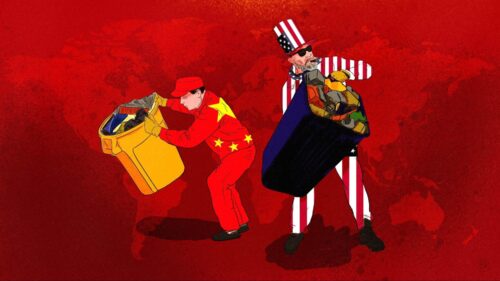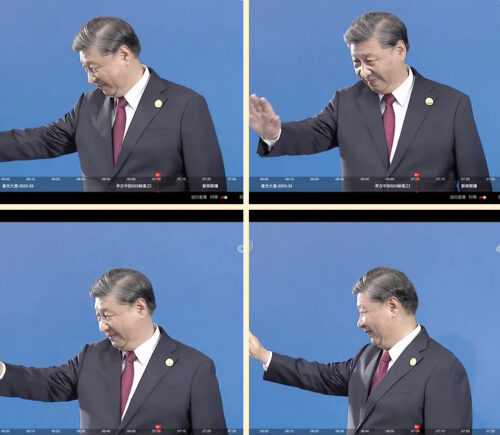Why state media fails to make China look good

In yesterday’s Access newsletter (paywall), we looked at the case of the slapping CCTV worker:
- China’s central state broadcaster CCTV aka CGTN has an employee in London named Kǒng Línlín 孔琳琳 (on Twitter and Weibo).
- Kong is an experienced and shrill propagandist. See for example China Change’s coverage of her from 2016: The world according to a CCTV journalist based in London.
- On Sunday, she attended a fringe event at the annual conference of Britain’s Conservative Party about declining freedoms in Hong Kong. Kong began screaming at the speakers and then slapped at a party volunteer who was trying to get her to leave. (Here is video footage of Kong’s outburst from Hong Kong Free Press.)
- The Chinese Embassy’s response: “The Human Rights Committee of UK Conservative Party should stop interfering in China’s internal affairs and stop meddling in Hong Kong affairs. The organizer of fringe event should apologize to the Chinese journalist.” CGTN also complained: China’s state broadcaster protests violation of journalist’s rights in UK.
- Kong was arrested and then released by British police, “amid stern representations from the Chinese Embassy in the UK,” according to CCTV.
- “It is the duty of these propaganda workers to dare to ‘draw their swords’ — therefore it is no surprise that we see high-profile responses from the government and strong support in public opinion,” said Rose Lǘqiū Lùwēi 闾丘露薇, a highly respected former Phoenix TV journalist in Hong Kong. Luwei is quoted in this Hong Kong Free Press piece: Reporter accused of assault released without charge after diplomatic pressure, says Chinese state TV.
As Luwei says, Kong Linlin and her colleagues are propaganda workers: Their main job is to make China look good, to its own citizens and to foreigners. So why would Kong fly off the handle like that, in the process exposing for all her role as propagandist, and damaging China’s image?
James Palmer, a senior editor at Foreign Policy, self-funded his early journalism and book-writing career for several years by working at state-owned nationalist rag Global Times in Beijing, and is very well placed to answer this question. In China’s global propaganda is aimed at bosses, not foreigners, he discusses several factors behind China’s expensive propaganda failures such as CGTN, including what may have been going on in Kong’s brain as she harangued the Tories yesterday:
Kong’s behavior may not have been a spontaneous outburst of outraged patriotism but a deliberately performative event, intended to boost her own career. And the twisted incentives that made that a good idea for her are also the ones that, as I learned in my own time in Chinese state media, continue to hold back CGTN’s attempts to become an effective international propaganda organ.
This makes a lot of sense, and a similar logic may explain some of the intemperate outbursts of Chinese ambassadors we have seen in recent months; see for example An undiplomatic diplomat in Sweden and China storms out of Pacific Islands Forum on The China Project. In both cases, the diplomats from Beijing seem uninterested in diplomacy, but rather cared most about scoring points back home for zealotry and ideological purity.






